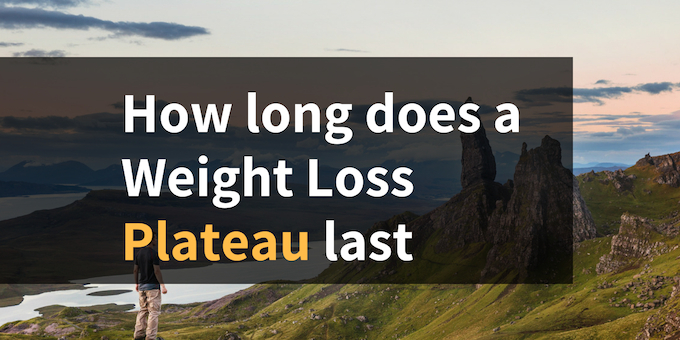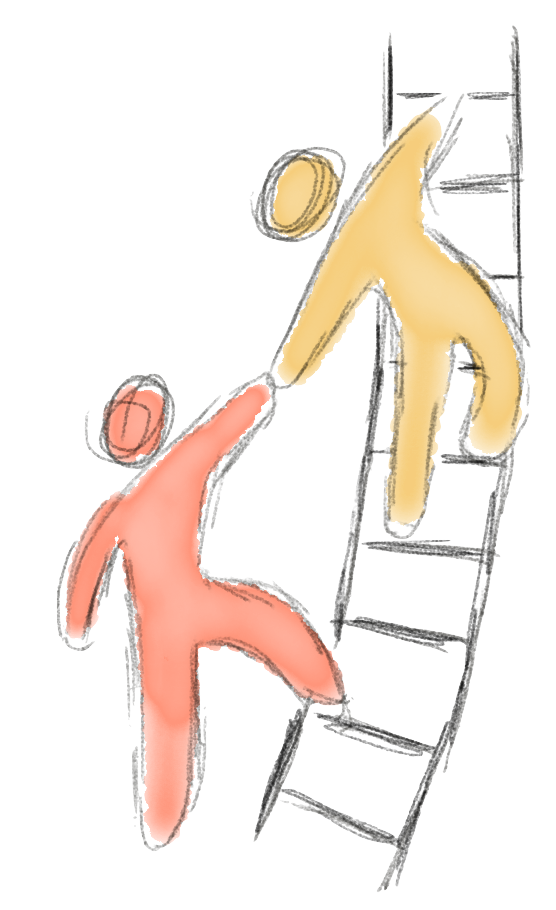How long does a Weight Loss Plateau last?

If you've asked this question, it is likely that you are not seeing weight loss progress for a period of time.
Simplistically speaking, a weight loss plateau can last from 2 weeks to several months.
However, there are many factors one should consider when feeling a sense of frustration with their results.
I want to dive into these more subtle aspects because it is these that will determine your success over the long-term.
#1 - What do you classify as results?
At the start of your weight journey, you might've lost 2 kgs in one week.
You feel encouraged by this and think if you keep this up, you might be able to lose 10kg in 5 weeks.
This kind of numbers thinking also excited me at the start of my journey.
But slowly, you realise that it is a lot easier to lose weight at the start than later on in your journey.
Before we change our approach, it is important to reflect back on what we actually classify as results.
For a lot of people, it is purely based on the numbers on the weighing scale.
While this is a good starting point, there are other more reliable ways to measure your physical progress.
Your body is made up of about 60% water and your water retention levels are constantly fluctuating.
Moreover, you might be building muscle and losing fat (especially if you're strength training).
Many of my clients notice that their weight starts to shift to different parts of their body when they are toning up.
Therefore, it's important to measure your progress in different ways.
In ways that give you a more accurate representation of your body changes.
The best way to do this is usually through:
- Body girth measurements - these are more reliable to see changes in body composition (waist, thighs, arms)
- Your dress or belt size - you'll know when things fit on easier!
- Photos - in the same lighting and clothing (back, side and front)
- DEXA scan - if you really love numbers and don't mind forking a few dollars
Note: recommended to measure at the same time of the day each time
Once you start measuring these, you'll get a more accurate answer if you have reached a weight loss plateau or not.
Side note:
I encourage my clients to also measure their progress in other aspects such as their daily energy, mood and mental health.
You might be making significant progress in these areas without realising unless you track it over a period of time.
I talk about how you can set up a scale to subjectively measure these in the following blog post: Examples of Long-term Weight Loss Goals
#2 - What's your mindset?
A lot of people want to lose weight.
But very few know why they want to lose weight.
I'm not talking about superficial reasons.
Looking good is a common human trait that almost everyone wants to experience.
There are deeper level motivations that drive us even if we're not aware of it.
The depth of your reason for want to lose weight will determine how persistent you'll remain on this journey.
Client Example:
Kate (name changed) is a 40 year old mum and wants to lose 8-10kgs.
The first time I asked her why she wanted to lose weight was because she wants to start fitting into her old dresses again.
That's a fair reason.
But it's not quite deep enough.
After about 20 mins of talking what we came to was the following:
This mum was born in a family of very good looking siblings including herself
As she got older, she wanted to retain that identity of looking beautiful.
However because she's gained weight, she feels she has lost that identity.
She feels low in confidence and self-esteem and is taking meds for her depression.
This was the first time she was able clearly articulate why she wanted to lose weight.
Will she look like her 20 year old self again?
Maybe not.
But after gaining clarity of her deeper level thoughts, she has become aligned with her goals.
Her goal is to now measure her progress by how energetic and lively she is feeling on a day to day basis.
She is eating better and moving more because it gives her energy bursts throughout the day.
She has stopped obsessing with the numbers on the weighing scale because they are less important to her.
She's changing her habits with the mindset of 'this will make me feel good for life.'
Key Tip
The more you understand the 'why' of your journey, the more patience and persistence you'll have over the long-run.
#3 - Are you calibrating your action plan?
Let's assume you have built a strong mindset and are tracking all the right things.
What if you still don't see results?
90% of the time, the answer will lie in how well you are calibrating your actions.
Calibrating is a fancy way of saying - adjusting your strategy based on the results you are getting.
There are two things that will help you calibrate:
1. Self awareness
Self awareness means being aware of your thoughts, emotions and behaviours and what results they lead to.
How to improve self-awareness:
Meditation, mindfulness and journaling (noting your thoughts, foods and behaviour patterns).
Hint: Journaling is one of the most underrated ways to reflect about your eating patterns. I'll make an in depth blog post about this. Keep an eye out!
2. Expert Guidance
It's important to focus on the right things in the right order.
And sometimes it takes an expert to point out what specific areas you should be focusing on to get to the next level.
These specific areas could be related to eating and exercise.
However for some people, it might be more worthwhile to address sleep and stress habits because they also play a significant role in weight loss.
How to get expert guidance:
You can either educate yourself or you can reach out to an expert coach to get advice relevant to your particular situation.
If you choose to educate yourself, remember to rely on sources that you can really trust (such as www.examine.com).
And if you decide to get help, choose someone who has been able to consistently achieve results with various types of people (and can relate to your situation).
Hint: I run one-on-one as well as group coaching programs. Get in touch here if you're interested.
Bottom Line
Plateaus can last 2 weeks to several months.
However before losing patience, there are some important things to consider.
Are you measuring different kinds of progressive (both objective and subjective)?
Are you approaching your weight loss journey with the right mindset (and know your 'why')?
Are you consistently calibrating through self-awareness and expert guidance?
If you answered yes to all of the above, the feeling of hitting a weight loss plateau will diminish very quickly.

Would you like a weight loss accountability buddy?

Get in touch and we'll set you up with a support structure that will help you stay on track - effortlessly and joyfully!
About the Author - Kern Kapoor
Kern's interest in psychology and human behaviour lead him to lose 34kg. He is a Certified Nutrition Coach (Pn2) and is currently on a mission is to create a community of 10,000 people who have undergone long-term body transformation.
If you'd like some one-on-one help with your weight loss goals, get in touch with him at kern@bodyknowsbest.net.

